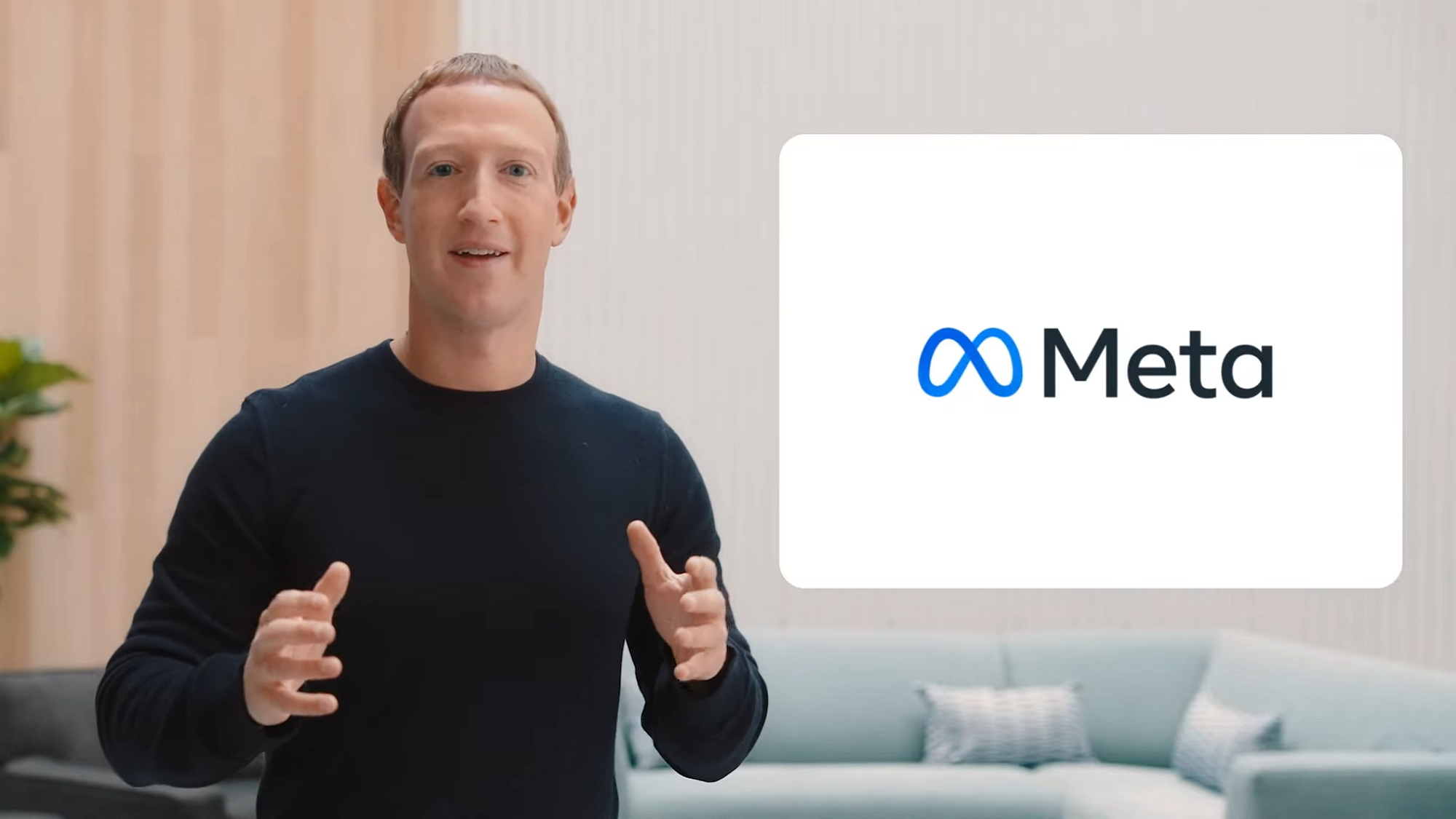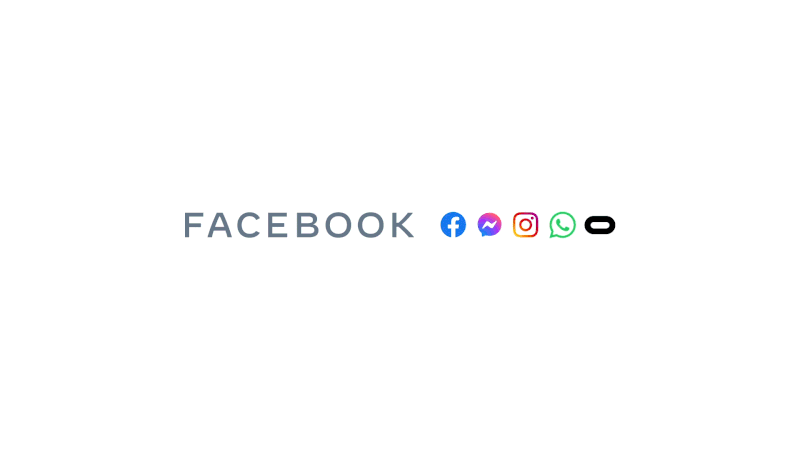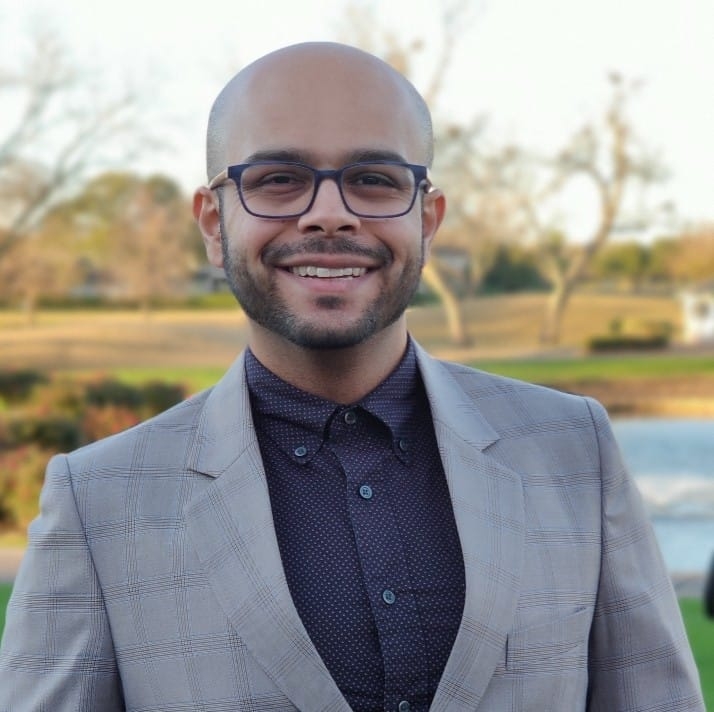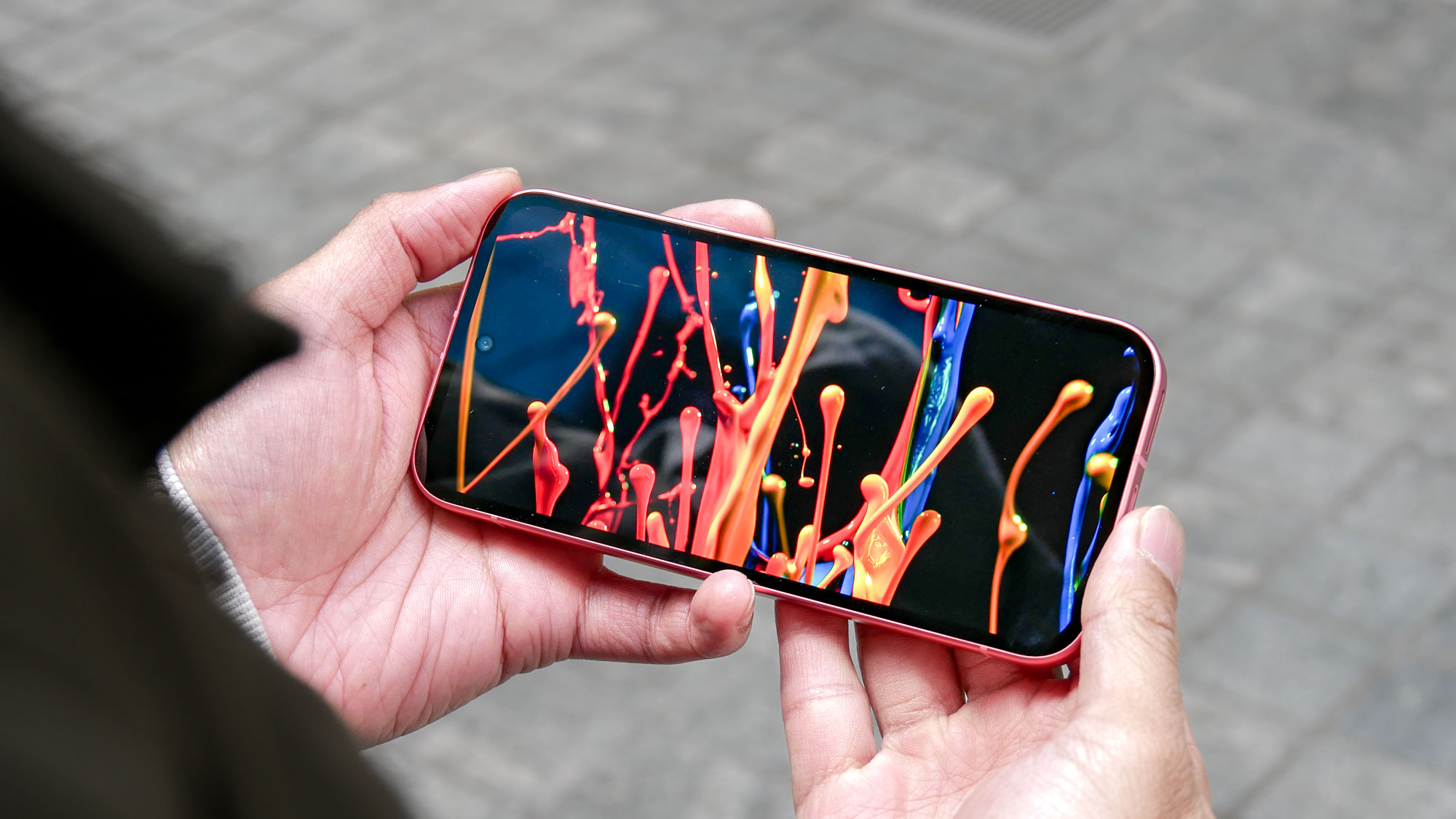
Facebook has changed the name of its parent company to Meta. Founder Mark Zuckerberg will now be the CEO of Meta, handing the reigns of Facebook over to another executive. But unlike when Google renamed its parent company to Alphabet, as its founders took a step back, Zuckerberg has no intentions of leaving the social media giant he started in his college dorm room.
Instead, Zuckerberg says that Meta will help pave the way for the metaverse, an expansion of the internet we use today.
But there's more to Meta than a slick new logo. Meta is also about removing Zuckerberg from the hottest parts of governmental scrutiny. The release of the Facebook Papers to the Washington Post and the Facebook Files to the Wall Street Journal, plus the testimony by former Facebook product manager Frances Haugen in front of Congress, has painted a cynical picture of the blue social media platform. It's a picture that's less about sharing cute baby pictures and more about engagement at all costs, even if it means pushing caustic content to the top, resulting in real-world violence.
Suffice it to say, Zuckerberg has a lot riding on Meta.
- Here's how to make yourself anonymous on Facebook
- Facebook Portal review (2nd generation)
- Plus: Facebook smartwatch leaked in new image — and it has a notch
In a founder's letter posted on the Meta news site, Zuckerberg wrote that the internet is going through another shift. Unlike previous shifts — first from text to images, then from images to video — this one will be more immersive.
This experiential internet will blend current elements of interaction into a composite universe, one made up of virtual and augmented worlds that users can seamlessly travel between, according to Zuckerberg. It kind of sounds like Ready Player One, or that one episode of Futurama where the crew puts on VR headsets and travel to a rather perverse personification of the internet.
"The defining quality of the metaverse will be a feeling of presence — like you are right there with another person or in another place," said Zuckerberg. "Feeling truly present with another person is the ultimate dream of social technology."
Sign up to get the BEST of Tom's Guide direct to your inbox.
Get instant access to breaking news, the hottest reviews, great deals and helpful tips.
In Zuckerberg's description of the future, people will get together, work, learn and shop without ever leaving their room. It will be like teleporting into another world. This will require the use of virtual reality and augmented reality glasses at all times — which just happens to be what the company is developing. Along with the Oculus Quest 2, which will now be renamed Meta Quest, Meta is working on Project Cambria, a mixed reality headset that will be introduced next year.
Thankfully, this immersive internet future will not be run by one company. Epic Games' Tim Sweeney has already expressed interest in the metaverse. Fortnite actually is kind of a metaverse in it of itself, where elements of the real world, such as Ariana Grande or LeBron James, can make their way into the Isle of the Storm for new interactive experiences. It could also be a way to release the grip Apple holds on its users through its devices.
Why is Facebook now Meta?

Suffice it to say, Facebook has not had a good 2021. The start of the year was marked by the insurrection at the U.S. Capitol, with new evidence now suggesting that the social media platform was means for organizers to congregate and spread their message. And this is separate of the speed at which vaccine misinformation spreads on the platform, and the inability for the company to keep up.
While Facebook had committed to dampening down the most animated parts of online political punditry prior to the 2020 election, limiting engagement in the process, as soon as Joe Biden was confirmed as the winner, it turned off those safeguards. It was during this period between Nov. 2020 and Jan. 2021 that organizers were able to use Facebook, along with other internet platforms, to fuel the Stop the Steal movement that looked to falsely dispute the election results.
"Facebook has demonstrated they cannot act independently. Facebook, over and over again, has shown it chooses profit over safety," said Haugen in an interview with CBS' 60 Minutes. "It is subsidizing, it is paying for its profits with our safety."
After the events of Jan. 6, those safeguards were turned back on, according to Haugen's testimony in front of Congress.
And this is in the U.S., where Facebook has teams of moderators to try and control the worst of social media users. In other countries, like Myanmar and Sri Lanka, there are a handful of moderators, if any at all. Facebook had also aggressively pushed into Myanmar, striking deals with phone carriers for free Facebook access, not thinking of the consequences. It's algorithms, plus abuse by the Myanmar government, led to the genocide and exile of the Rohingya Muslim minority. Facebook has since ended the program. But it does point to a common Silicon Valley trope of introducing the product first and patching out the problems later. In this case, though, dealing with the issues after the product was already in use had deadly consequences.
But really, by making a new umbrella organization, one that Zuckerberg is CEO of, it gives him more control over his social media companies. Zuckerberg has already created dual-class shares, in which owners of class B shares have more power than owners of class A shares. Of course, Zuckerberg owns a lot of class B shares, meaning that he has the most control in the boardroom.
Not only that, by being CEO of the larger umbrella organization, Zuckerberg could potentially avoid governmental scrutiny by appointing another person as CEO of Facebook. The millions spent on federal lobbying probably doesn't hurt either.
"He’ll probably get out of a couple summons or calls to come speak in front of the House Antitrust Subcommittee because they will argue — and the committee will go for it — that, 'Well, you should speak to the CEO of Facebook. That’s the right person to come,'" said Scott Galloway, professor of marketing at NYU's Stern School of Business in an episode of the Pivot podcast. "I hope people don’t fall for it."
Imad is currently Senior Google and Internet Culture reporter for CNET, but until recently was News Editor at Tom's Guide. Hailing from Texas, Imad started his journalism career in 2013 and has amassed bylines with the New York Times, the Washington Post, ESPN, Wired and Men's Health Magazine, among others. Outside of work, you can find him sitting blankly in front of a Word document trying desperately to write the first pages of a new book.

